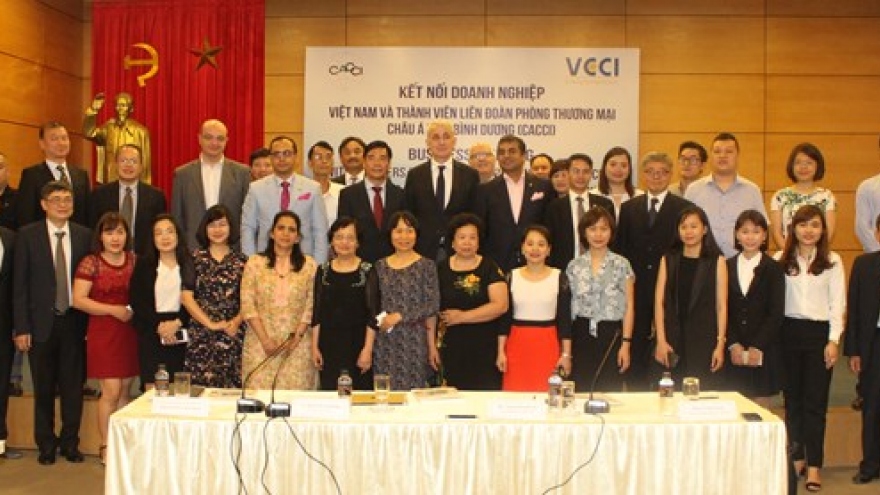Radical reform needed to improve business climate
VOV.VN - Most Vietnamese businesses are encountering difficulties when they come to accessing capital sources, enhancing supply chain connectivity, and dealing with high production costs.
 |
There has been a rapid increase in the number of enterprises and the quantity of registered capital, while the proportion of businesses ceasing operations or dissolving has also seen a sharp decline.
Notably, a number of sub-licenses have been removed while administrative reforms and customs procedures have also been reduced. Showing the success of reforms, 99% of enterprises have paid their taxes online.
A report on the implementation of resolution 19 on tasks and solutions to improve the business environment and the global competitiveness report 2017 by the World Economic Forum has shown that Vietnam’s competiveness moved up five places in 2017 compared to 2016 when it was placed in55th position out of 137 economies. The business environment index also climbed up 14 spots while the indices of creativity and renovation gained 12 places, to rank 47th out of 127 economies. Tax collection and social insurance indices have also improved remarkably to 68th position out of 190 nations.
According to the business community, aside from particular highlights improvements to the business climate, businesses have still faced a number of difficulties which have hindered their development.
Pham Ngoc Thanh, CEO of Phuc Lam Development and Trading Consulting Joint Stock Co, Ltd says his company is in a fix to gaining access to capital resources from credit institutions because of rigid requirements on guaranteed assets set by banks and limited experience and a lack of economic efficiency of businesses which have been established for just five years.
Thanh says that despite the wealth of new ideas and great determination, the shortage of capital resources will impede businesses’ implementation of their business plans and strategies.
Mac Quoc Anh, Vice President of the Hanoi Association of Small and Medium-sized Enterprises (SMEs) says one of the biggest pediments for businesses is the low level of connectivity among businesses. At present, just 20% of Vietnamese businesses are capable of becoming in the regional supply chain while the figures in Malaysia and Thailand are 46% and 30% respectively.
Mr Anh says that there is no or little connectivity among SMEs operating in the for fear of failure to maintain their toehold in the market. As a result they tend to compete with each other at any cost to survive in a small-scale capital market.
State management agencies should work closely in amending policies in order to remove obstacles to businesses, especially in making radical administrative reforms to dealing with unofficial and official costs.
Vietnam has altered several policies in compliance with international norms. However, the scale of SMEs has been gradually reduced leading to a lower competitiveness of businesses overall, notes Mr Anh.
Curtailing production costs should be considered a top priority policy while there should be a concerted effort to remove obstacles which reduce businesses’ capability to access capital resources and the workforce.
The representative from Hanoi SMEs Association also proposes creating a playground to enhance the connectivity of the supply value chain between support businesses and major businesses, especially FDI businesses operating in Vietnam to devise feasible business plans.
At present, several ministries and agencies have pledged to simplify administrative formalities, which require closer supervision and careful examination from the government, thereby earning businesses’ trust and supporting their sustainable development, Mr Anh notes.



